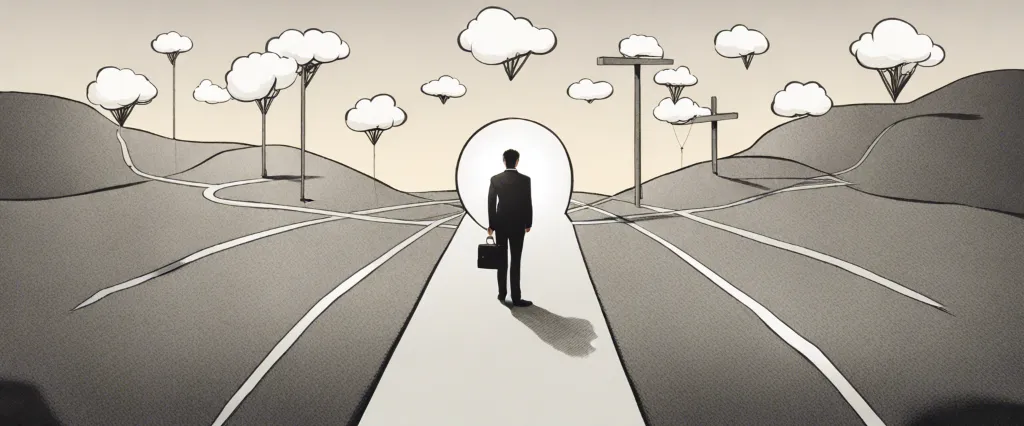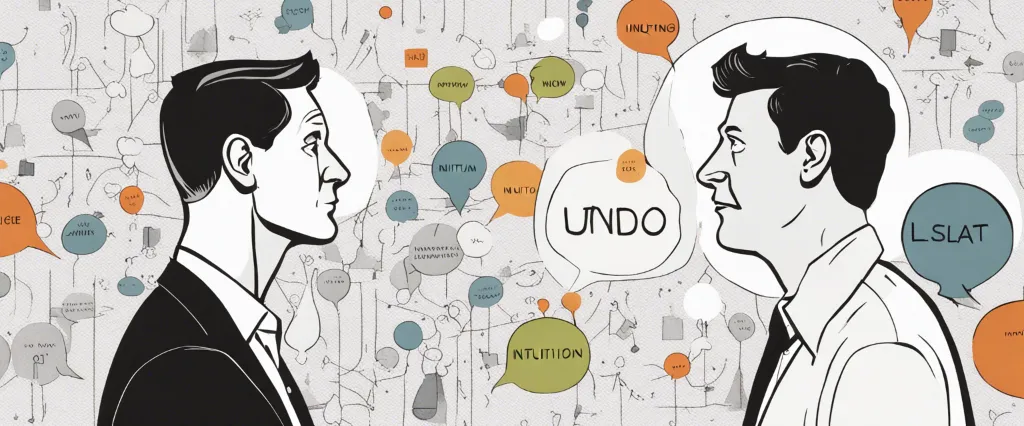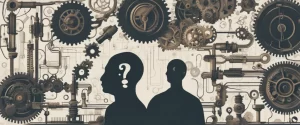
In the realm of behavioral economics, two prominent figures stand tall, reshaping our understanding of human decision-making and challenging the traditional assumption of rationality. Michael Lewis’s “The Undoing Project” and Richard H. Thaler’s “Misbehaving” not only delve into the depths of this fascinating subject but also introduce us to the individuals at its very core – two extraordinary psychologists, Daniel Kahneman and Amos Tversky. While both books explore the eclectic domain of behavioral economics, they approach it from distinctive angles, presenting diverse narratives that shed light on the profound impact that the research of Kahneman and Tversky has had on our perceptions of human behavior and its economic implications.
“The Undoing Project,” crafted meticulously by Michael Lewis, takes us on a captivating journey into the lives of Kahneman and Tversky, exposing the intricate relationships between the two minds behind one of the most profound collaborations in the history of psychology. Lewis beautifully weaves a narrative that captures the deep camaraderie, intellectual friction, and shared passion that defined their work, while showcasing the personal struggles and triumphs that molded their groundbreaking theories. Through Lewis’s meticulous storytelling, we gain invaluable insights not only into the groundbreaking ideas of Kahneman and Tversky, such as prospect theory, but also into the human dimensions behind the process of scientific discovery.
On the other hand, Richard H. Thaler’s “Misbehaving” approaches the subject matter with the perspective of an insider. Thaler, considered one of the pioneers of behavioral economics himself, offers a more autobiographical account of his own journey in the field. In “Misbehaving,” Thaler masterfully combines personal anecdotes and thought-provoking insights to shed light on the birth and evolution of behavioral economics as a discipline. Through his engaging storytelling, Thaler reveals the challenges he faced while challenging the conventional economic theories, promoting the theories of Tversky and Kahneman, and his quest to integrate behavioral insights into mainstream economics. This book invites readers to accompany Thaler throughout his academic career, providing a unique insider’s perspective on the development of behavioral economics from its early days to its influence on public policy.
As we embark on this comparative study of “The Undoing Project” and “Misbehaving,” we will explore the distinctive approaches employed by Michael Lewis and Richard H. Thaler in presenting the complex subject matter of behavioral economics. By examining the narratives, themes, and the personal journeys of these remarkable thinkers, we hope to gain a comprehensive understanding of the theories and their lasting impact on our understanding of human decision-making. Through this exploration, we aim to uncover the synergies and divergences that exist within the realm of behavioral economics, illuminating the interconnectedness of these captivating books and the ideas they espouse.
Brief Summary of Two Books
The Undoing Project by Michael Lewis
“The Undoing Project” is a non-fiction book written by Michael Lewis, published in 2016. The book focuses on the groundbreaking work of Israeli psychologists Daniel Kahneman and Amos Tversky, who revolutionized cognitive psychology and decision-making theory.
Lewis explores the lives and unique partnership of these two brilliant minds, who formed an unlikely friendship. Kahneman and Tversky challenged conventional wisdom and exposed the flaws in human intuition through their research, which had a profound impact on various fields, including economics, medicine, and military strategy.
The book highlights their most influential concepts, such as prospect theory, which explained how individuals make choices based on potential gains and losses rather than objective probability. Their work also exposed cognitive biases, such as confirmation bias and anchoring, that affect human decision-making. These breakthroughs brought a new understanding of how people think and make judgments.
“The Undoing Project” delves into the personal lives and intellectual journeys of Kahneman and Tversky, revealing their struggles with self-doubt, resilience, and the pressures of academia. Lewis explores the collaborative and competitive dynamics of their partnership, as they challenged and refined each other’s ideas.
Throughout the narrative, Lewis showcases the influence and significance of Kahneman and Tversky’s work. Their collective research laid the foundation for the field of behavioral economics, which has had far-reaching implications in various industries. Their discoveries also shed light on the flaws of human reasoning, leading to improvements in decision-making processes across disciplines.
By providing an engaging account of Kahneman and Tversky’s remarkable collaboration and breakthroughs, “The Undoing Project” offers readers a deeper appreciation of how these two psychologists rewrote the rules of rationality and forever altered our understanding of the human mind.
Misbehaving by Richard H. Thaler
“Misbehaving” by Richard H. Thaler is a groundbreaking book that explores the field of behavioral economics, challenging traditional economic theories that assume people are rational and consistently make optimal decisions. Thaler, a leading economist, argues that human behavior is inherently irrational, influenced by biases and cognitive limitations.
Thaler introduces the concept of “Humans” who deviate from the idealized “Econs,” the rational actors assumed by traditional economics. He demonstrates how individuals are influenced by various psychological factors, such as loss aversion, mental accounting, overconfidence, and social preferences. Thaler presents numerous real-life examples and experiments to illustrate how these influences shape our economic choices and often lead to suboptimal decisions.
The book also delves into the field of choice architecture, showing how subtle changes in framing and presentation can significantly impact individuals’ decisions. Thaler discusses the importance of “nudges,” which are small interventions that help individuals make better choices without limiting their freedom. He suggests that policymakers and institutions can harness the power of choice architecture to nudge people towards making beneficial decisions, such as saving for retirement or adopting healthy behaviors.
Thaler’s work combines economic theory, psychology, and practical applications to provide a comprehensive understanding of the limitations of traditional economics and the potential for using behavioral insights to improve decision-making. “Misbehaving” is a thought-provoking and engaging book that challenges conventional thinking, making it an essential read for anyone interested in understanding the complexities of human behavior and the ways in which it shapes our economic choices.
Comparison between Two Books

Similarities in Economics
Both The Undoing Project by Michael Lewis and Misbehaving by Richard H. Thaler delve into the field of behavioral economics and highlight the impact of irrational human behavior on economic decisions. Here are some similarities in terms of their focus on economics:
1. Behavioral Economics: Both books explore the field of behavioral economics, which combines insights from psychology and economics to study how people make economic decisions. They emphasize that individuals do not always behave rationally, as assumed by traditional economics.
2. Human Decision-Making: Both books emphasize the role of human decision-making in economic outcomes. They question the assumption of purely rational decision-making and focus on the factors that influence our choices, such as biases, heuristics, and emotions.
3. Cognitive Biases: Both books discuss various cognitive biases that affect our economic decisions. For example, Thaler discusses the endowment effect and the framing effect, whereas Lewis highlights the role of biases like overconfidence and hindsight bias in decision-making.
4. Analysis of Economic Systems: Both books analyze economic systems and demonstrate how irrational behavior influences these systems. They discuss examples from different domains, such as finance, sports, and medicine, to illustrate how human biases have significant economic implications.
5. Insights from Experiments: Both authors rely on empirical evidence and experiments to support their arguments. Thaler, a prominent figure in behavioral economics, often discusses his own research and experiments, while Lewis explores the work of Daniel Kahneman and Amos Tversky, pioneers in the field.
6. Effects on Policy: Both books examine the potential impact of understanding biases and irrational behavior on policy-making. Thaler, in particular, explores how policymakers can use behavioral insights to design policies that nudge people towards better decisions, known as “nudge theory.”
Overall, The Undoing Project and Misbehaving share a common focus on behavioral economics, bringing attention to the interplay between human behavior and economic outcomes. They emphasize the need to incorporate psychological factors into economic models, challenging the assumption of rationality in traditional economics.
Divergences in Economics
Both The Undoing Project by Michael Lewis and Misbehaving by Richard H. Thaler delve into the field of behavioral economics and highlight its significance in understanding human decision-making. While both books have a similar focus, there are key divergences in their approaches to economics.
1. Focus on the individuals vs. institutions: The Undoing Project primarily centers around the collaborative work of two psychologists, Daniel Kahneman and Amos Tversky. It emphasizes the importance of understanding individual cognitive biases and psychological factors in decision-making processes. On the other hand, Misbehaving by Richard H. Thaler takes a broader view and examines the role of institutions and markets in shaping economic behavior. Thaler emphasizes how policy changes and the design of economic systems can influence individual decision-making.
2. Narrative-driven vs. theory-driven: Michael Lewis’s The Undoing Project is a narrative-driven book that focuses on the personal stories and intellectual journey of Kahneman and Tversky. Lewis emphasizes the impact of their friendship and academic collaboration on the development of behavioral economics. In contrast, Richard H. Thaler’s Misbehaving is more theory-driven, outlining key economic theories and principles related to behavioral economics. Thaler provides more systematic analysis and theory-based explanations for individual and market behavior.
3. Historical perspective vs. contemporary applications: The Undoing Project provides a historical perspective, focusing on the groundbreaking research conducted by Kahneman and Tversky in the 1970s and beyond. It explores their experiments and reveals how their findings challenged traditional economic theories. In contrast, Misbehaving offers more contemporary applications of behavioral economics, particularly in policy-making and designing better economic systems. Thaler discusses real-world examples and offers practical suggestions for improving decision-making in various fields.
4. Psychological analysis vs. behavioral insights: The Undoing Project heavily emphasizes the psychological aspect, particularly cognitive biases and heuristics that individuals employ when making decisions. It provides a deeper understanding of how human psychology affects economic decision-making. In contrast, Misbehaving focuses more on the broader concept of behavioral economics, which encompasses the study of economic behavior and its deviations from rationality. Thaler explores various behavioral insights, including limited rationality, bounded self-control, and social preferences.
In summary, while both books cover similar ground in exploring behavioral economics, The Undoing Project by Michael Lewis offers a more individual-centric, narrative-driven approach, highlighting the psychological underpinnings of economic decision-making. On the other hand, Misbehaving by Richard H. Thaler provides a theory-driven perspective, focusing on the broader implications of behavioral economics and its applications in the real world, including policy-making and designing economic systems.

Conclusion
Both “The Undoing Project” by Michael Lewis and “Misbehaving” by Richard H. Thaler are highly acclaimed books that offer valuable insights in different areas.
“The Undoing Project” explores the groundbreaking research of psychologists Daniel Kahneman and Amos Tversky, who revolutionized the field of behavioral economics. Lewis masterfully tells the story of their collaboration and how it led to the understanding of human biases and decision-making. If you are interested in psychology, decision science, and the implications of irrational behavior, this book is a compelling read.
On the other hand, “Misbehaving” by Richard H. Thaler focuses more on the field of behavioral economics itself and Thaler’s personal experiences as a pioneer in this area. He describes how traditional economic theories fail to account for human irrationality and provides practical examples of how behavioral economics can explain deviations from rational decision-making. If you are specifically interested in learning about behavioral economics and its applications, “Misbehaving” is an excellent choice.
Ultimately, the choice between these two books depends on your specific interests. However, both “The Undoing Project” and “Misbehaving” provide unique and valuable insights into the field of behavioral economics and are worth reading if you have an interest in this subject.

